 | 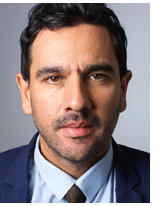 Telecoms and audiovisual: the first step to getting along, is listening Telecoms and audiovisual: the first step to getting along, is listening
Some portray audiovisual media and telecommunications as brothers at war. I don’t see it that way. Networks and the creative process form a virtuous circle wherein each feeds to the other’s bounty. In today’s world dominated by Big Tech, the future audiovisual act is an opportunity to offer up a shared vision, one that goes beyond the “narcissism of petty differences” we can sometimes get stuck in by the issues we tackle on a daily basis. It is in this spirit that Arcep has made three proposals to enable audiovisual services to be masters of their destiny in the digital transformation.
This is the same state of mind that drives Arcep when considering the future of digital terrestrial TV (DTT). Having reflected on the consequences that changing user habits, the growing popularity of TV over IP boxes, on mobiles or simply online have had on terrestrial broadcasting reception (rooftop antennae), in June Arcep proposed putting an end to 12 years of regulating broadcasting service provider, TDF. Does it make sense to maintain a pro-competition action confined to only terrestrial technology, in perpetuity, at a time when more and more avenues are being used to broadcast TV programmes, at the expense of terrestrial? Would it not be wiser to provide these avenues with the guarantee that they too can access these new options under good conditions?
This proposal nevertheless surprised stakeholders, and Arcep is committed to being a good listener. The regulator must send out the right signals to support technological transitions, but also to set the right pace. This is why Arcep ultimately decided to postpone its decision for two years, during which time the current regulation will remain in effect, and so give stakeholders the time they need to make the transition. This decision will result in the publication of a new document in the coming weeks.
In exchange, Arcep is calling on industry stakeholders and public authorities to listen to the warning it is sending out about the emergence of new intermediaries between TV channels and viewers. Currently required to negotiate with ISPs for access to their boxes, TV channels – which will increasingly become apps not only on the TV screen, but also on other screen-based devices and smart speakers – will have to negotiate with the internet giants to be able to reach TV viewers. With the resulting danger that our shared culture will have to bow down to the almighty market overlords.
If thriving innovation starts off as a good thing, let us also keep in mind that, in the past, we were able to extract from the rules that govern the market, methods for distributing cultural content, and to guarantee a principle of free and universal access to knowledge. This is the idea of cultural exception, which we find reflected in the single price charged for books, press distribution, and to some extent net neutrality as well. This is the principle that needs to be revived for the digital age, so that we can continue to come together over a shared culture.
Sébastien Soriano, Chairman of Arcep

|  |
 |
Regulation in action
Arcep has just published the findings of its 19th mobile QoS survey. Available on “Mon réseau mobile”, these findings serve to complete the theoretical coverage maps with measurements taken in the field. Information aimed at users so that competition between operators be based not only on price, but also rewards their investments in the networks: data-driven regulation strikes again!
Once again this year, dozens of technicians travelled the country, and performed over a million tests financed by operators, in rural, medium density and densely populated areas. Operators’ networks are tested under fully comparable conditions: in the same place, at the same time, using the same phones, and this for the most common uses (voice calls, texting, downloading…). Arcep has steadily expanded its scope of enquiry: the main international railway lines (Thalys, Eurostar, etc.) were added for the first time in 2018, along with some 20 popular tourist destinations in France.
Some of the highlights of this year’s findings:
- The quality of every operator’s mobile internet services has improved;
- Orange scored highest, Bouygues Telecom has pulled ahead of SFR, Free Mobile is last;
- The average mobile connection speed in Metropolitan France, all areas and all operators combined, stands at 30 Mbit/s.
The findings are published on monreseaumobile.fr and available as open data.
Further details can be found in our press release
|  |
 |
|
On our radar
| |
Networks of the future
On 1 October, Arcep began a period of investigation into the networks of the future. One goal: to prepare for the upcoming regulatory challenges surrounding communication networks. Arcep invited 10 special people to join its scientific committee, and help it conduct this forward-looking process. Who are they? Find out on our website.
Arcep’s scientific committee
| 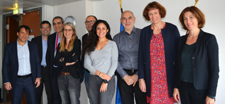
|
|
| | 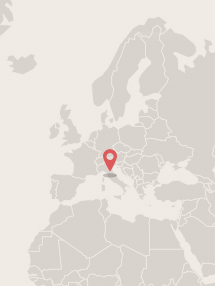 | |
News from around the world
Record-breaking 5G auctions in Italy
Italy has just awarded licences in the three frequency bands targeted for 5G: 700 MHz, 3.7 GHz and 26 GHz. A total 1,260 MHz of spectrum were allocated to Italy’s mobile operators for a period of 19 years, during these auctions that brought in more than 6.5 billion euros. Compared to the country’s population, the band was valued at two and half times what it was in the UK and eight times what it was in Spain.
As for France, Arcep will be launching a public consultation in late October, calling on economic stakeholders and local authorities to share their views on the methods and conditions to be applied to the allocation of 5G frequencies.
Arcep’s 5G roadmap
|
| |
 |
Field notes
“The real concern for elected officials is monitoring disruptions on the legacy copper network”
Sébastien Soriano, accompanied by Arcep staff members, attended the annual conference of France’s National association for elected officials from mountain regions (ANEM), which took place on 18 and 19 October in Morteau, in the Doubs. He took the opportunity to deliver a progress report on the New Deal for Mobile, and spoke with Marie-Noëlle Battistel, the association’s outgoing president, Annie Génevard and Jeannine Dubié the current president and Secretary General, and with Sébastien Lecornu, the Minister responsible for local authorities. The questions from elected officials in attendance concerned mainly fibre and 4G network coverage in the regions.
For the president of ANEM, however, “the real concern for elected officials is monitoring disruptions on the legacy copper network”. Elected officials cited a litany of problems: “fallen lines,” “repairs made in very slow increments”, “up to two months waiting”, “work only partially done, in several stages”… Sébastien Soriano reported that Arcep is “in the process of verifying the indicators and, if the findings are unacceptable, will do something about it”. (NB: Orange has since been issued a formal notice to remedy the situation).
The following day was spent visiting fibre (FttH) rollouts in Gilley and Combes, a town of 750 inhabitants, where 98% of homes have been passed for fibre by the Doubs THD joint association, and over 60% subscribe to a fibre plan. President of the joint association, and department vice-president, Denis Leroux reiterated the objective he was given by the department: “Cover 100% of the department with FttH by the end of 2022, i.e. two years ahead of the initial target date”.
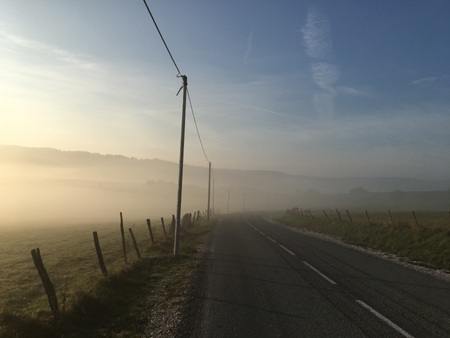 |  |
 |
Meanwhile in Brussels...
On 20 September, the European Regulators Group for Postal Services (ERGP) hosted its first ever “Stakeholders Forum” in Brussels. The event brought together postal, digital and e-commerce market stakeholders to discuss the future of regulation, around the central theme of: “When digital meets postal – Evolution or revolution?”
A chance to discuss the challenges and opportunities being ushered in by the tremendous growth of e-commerce in Europe. Andreas Marschner, Amazon’s VP of Transportation services for the EU, identified, for instance: 365-day shipping a year, the development of innovative technologies for ensuring delivery in the last drop (even with the recipient is absent), cutting out the maximum number of middlemen in the logistics chain to ensure even faster delivery.
There is also no shortage of challenges on the regulatory front: ensuring transparency, affordable prices, reliability, consumer protection… Let the debates begin! ERGP has begun a series of projects, with a view to delivering an opinion to the European Commission in summer 2019 on possible reforms to the Postal Directive.

|  |
 |
Arcep, telling it like it is
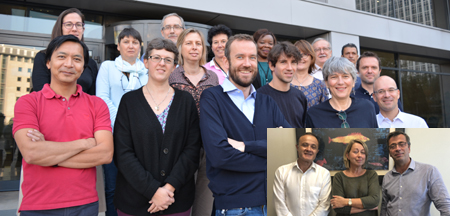 Arcep is moving! Arcep is moving!
On 19 November, Arcep will be moving to a new neighbourhood, and new offices in Paris’s 12th arrondissement. All of Arcep’s Secretariat General teams have been working for months to ensure this giant move goes smoothly.
Moving means:
- Finding the right place, among the 33 locations chosen, 20 buildings visited, 6 buildings shortlisted, a lease to negotiate, compliance with the financial and surface-area criteria set by the State Property Management Department;
- Office planning in a new building, which required coming up with the optimum configuration for open and collaborative work spaces, and a liberated government organisation;
- But also… calls to tender held in accordance with the rules of public tenders, dozens of assessment and dozens of monitoring and evaluation tables, workshops, over 400 boxes of archives, very funny moments, some hair pulling, a final stretch, four weeks before D-Day for the 170 Arcepians who, we hope, will feel right at home in no time!
General Secretariat of Arcep
|  |
 |
Mark your calendar

Internet Governance Forum | 12 to 14 November 2018 in Paris
This year the Internet Governance Forum, a vehicle for dialogue created under the aegis of the United Nations, will be held in Paris. The IGF is open to all, and brings together representatives of federal governments, businesses, the technical community, civil society, etc. It will be a unique opportunity for Arcep to contribute to discussions on the future of internet governance with all of the key stakeholders.
Three topics near and dear to Arcep’s heart will be explored: net neutrality, 5G and ensuring open internet access on devices (smartphones, tablets, voice assistants…). Arcep Chair, Sébastien Soriano, Executive Board member, Serge Abiteboul, and our teams will lend their expertise to the debates and roundtables devoted to these issues that will shape our future.
Find out more
|  |
 |
5 and 6 November in Paris
Autumn Trip 2018 symposium
The ELAN Act on the future of housing, planning and digital, and a post-mortem of the calls for expressions of local interest will be at the heart of the discussions at this autumn symposium devoted to public-imitative networks (PIN), hosted by AVICCA. Guillaume Mellier, Director of Arcep’s Fibre, Infrastructures and Territories department will be taking part in a roundtable on 6 November, called: “Accelerating public FttH rollouts: how can we do better?”
Find out more (in French)
19 and 20 November in Lima, Peru
BEREC – REGULATEL Summit
Europe’s body of regulators for electronic communications and the counterpart body of South American regulators will be coming together on 19 and 20 November in Lima for a two-day conference. On the agenda: Open Internet, especially with respect to devices, 5G, IoT, data-driven regulation… an opportunity as well to discuss areas for partnership between the two bodies. BEREC Chair, Sébastien Soriano, will be talking about the issue of devices.
22 and 23 November in Paris
FRATEL plenary meeting
“What role can the regulator play in fostering innovation and efficient investment in telecoms?” is the central theme of the 2018 plenary meeting of FRATEL, the network of French-speaking telecoms regulators. This year’s meeting will be held in Paris, at the invitation of the network’s current president, the Côte d’Ivoire regulator, and the French NRA which will be the network’s president in 2019.
Find out more (in French)
26 November in Paris
Presentation of the 2018 Digital market barometer
The Digital market barometer is THE benchmark report on French people’s use of digital technology. Join us in November to find out: French people’s favourite devices, how they use the internet, how often do they use instant messaging, and more.
This statistical survey has been conducted every year since 2007 by CREDOC on behalf of Arcep, the National Economic Council and the French Digital Agency. All of the findings are available as open data.
28 November in Paris
Digiworld Summit
The 40th annual Digiworld Summit will be held this year at the Maison de la Mutualité in Paris, and no longer in Montpellier. Hosted by IDATE, this conference will be dedicated to all things “phygital”: when “digital” meets “physical” – an interconnection found in e-commerce, infrastructure, soon to be autonomous cars…
Find out more
| |

 |
|  |
|

